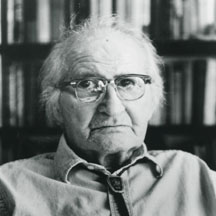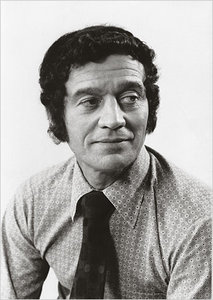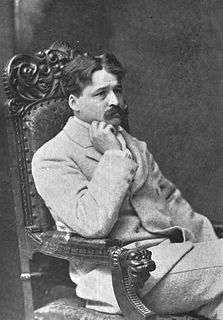A Quote by Anais Nin
The writer is the duelist who never fights at the stated hour, who gathers up an insult, like another curious object, a collector's item, spreads it out on his desk later, and then engages in a duel with it verbally. Some people call it weakness. I call it postponement. What is weakness in the man becomes a quality in the writer. For he preserves, collects what will explode later in his work. That is why the writer is the loneliest man in the world; because he lives, fights, dies, is reborn always alone; all his roles are played behind a curtain. In life he is an incongruous figure.
Quote Topics
Alone
Always
Always Alone
Another
Because
Becomes
Behind
Call
Collector
Curious
Curtain
Desk
Dies
Duel
Explode
Fights
Figure
He Man
His
Hour
Insult
Item
Later
Life
Like
Lives
Man
Never
Object
Out
People
Played
Postponement
Preserves
Quality
Reborn
Roles
Some
Some People
Stated
Then
Up
Weakness
Why
Will
Work
World
Writer
Related Quotes
There comes the baffling call of God in our lives also. The call of God can never be stated explicitly; it is implicit. The call of God is like the call of the sea, no one hears it but the one who has the nature of the sea in him. It cannot be stated definitely what the call of God is to, because his call is to be in comradeship with himself, for his own purposes, and the test is to believe that God knows what he is after.
People meet writers and are bowled over when the writer is friendly to them and invites them to his house for a glass of wine or to shoot up heroin or whatever they do, and they talk their heads off, and a year later it comes out in a book, and there follow years of bitter and fruitless litigation, and that is why you should always keep a writer at arm's length.
A priest is a man vowed, trained, and consecrated, a man belonging to a special corps, and necessarily with an intense esprit de corps. He has given up his life to his temple and his god. This is a very excellent thing for the internal vigour of his own priesthood, his own temple. He lives and dies for the honour of his particular god. But in the next town or village is another temple with another god. It is his constant preoccupation to keep his people from that god. Religious cults and priesthoods are sectarian by nature; they will convert, they will overcome, but they will never coalesce.
A library represents the mind of its collector, his fancies and foibles, his strength and weakness, his prejudices and preferences. Particularly is this the case if, to the character of a collector, he adds - or tries to add - the qualities of a student who wishes to know the books and the lives of the men who wrote them. The friendships of his life, the phases of his growth, the vagaries of his mind, all are represented.
Detach the writer from the milieu where he has experienced his greatest sense of belonging, and you have created a discontinuity within his personality, a short circuit in his identity. The result is his originality, his creativity comes to an end. He becomes the one-book novelist or the one-trilogy writer.
But the writer who endures and keeps working will finally know that writing the book was something hard and glorious, for at the desk a writer must try to be free of prejudice, meanness of spirit, pettiness, and hatred; strive to be a better human being than the writer normally is, and to do this through concentration on a single word, and then another, and another. This is splendid work, as worthy and demanding as any, and the will and resilience to do it are good for the writer's soul.
It's akin to style, what I'm talking about, but it isn't style alone. It is the writer's particular and unmistakable signature on everything he writes. It is his world and no other. This is one of the things that distinguishes one writer from another. Not talent. There's plenty of that around. But a writer who has some special way of looking at things and who gives artistic expression to that way of looking: that writer may be around for a time.
To choose a writer for a friend is like palling around with your cardiologist, who might be musing as you talk to him that you are a sinking man. A writer's love for another writer is never quite free of malice. He may enjoy discussing your failures even more than you do. He probably sees you as tragic, like his characters - or unworthy of tragedy, which is worse.
The writer walks out of his workroom in a daze. He wants a drink. He needs it. It happens to be a fact that nearly every writer of fiction in the world drinks more whisky than is good for him. He does it to give himself faith hope and courage. A person is a fool to become a writer. His only compensation is absolute freedom. He has no master except his own soul and that I am sure is why he does it.
The writer is a spiritual anarchist, as in the depth of his soul every man is. He is discontented with everything and everybody. The writer is everybody's best friend and only true enemy-the good and great enemy. He neither walks with the multitude nor cheers with them. The writer who is a writer is a rebel who never stops
The reason for the slow progress of the world seems to lie in a single fact. Every man is born under the yoke, and grows up beneath the oppressions of his age. He can only get a vision of the unselfish forces in the world by appealing to them, and every appeal is a call to arms. If he fights he must fight, not one man, but a conspiracy. He is always at war with a civilization. On his side is proverbial philosophy, a galaxy of invisible saints and sages, and the half-developed consciousness and professions of everybody. Against him is the world, and every selfish passion in his own heart.
A writer never forgets the first time he accepted a few coins or a word of praise in exchange for a story. He will never forget the sweet poison of vanity in his blood and the belief that, if he succeeds in not letting anyone discover his lack of talent, the dream of literature will provide him with a roof over his head, a hot meal at the end of the day, and what he covets the most: his name printed on a miserable piece of paper that surely will outlive him. A writer is condemned to remember that moment, because from then on he is doomed and his soul has a price.






































